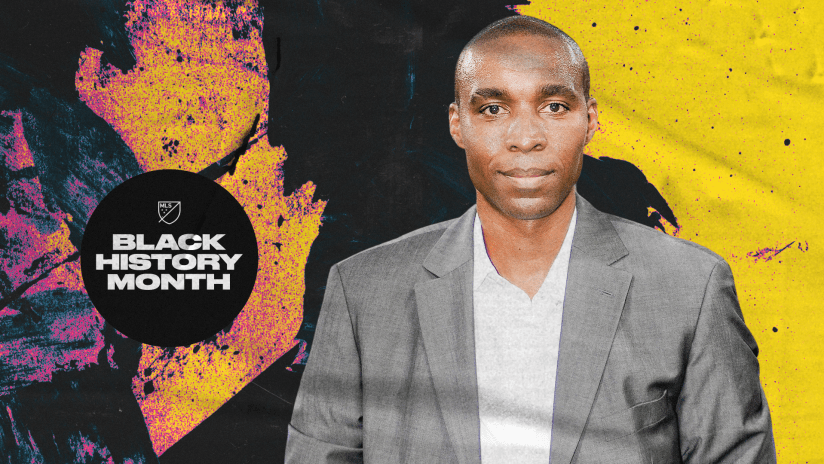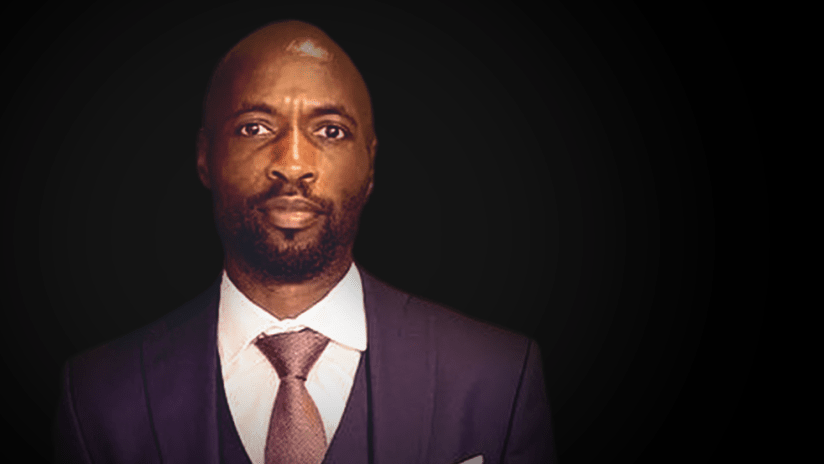In retrospect, maybe I was lucky to experience less racism, not more, as I climbed the ranks from youth to professional and international soccer.
"You name it, I've probably been called it"
I’m from High Point, North Carolina, and growing up playing soccer in the south, you name it, I've probably been called it – the N-word and plenty of other abuse like that. It starts with the fact that some people just really want to see their team win, and so they yell things out from the stands that they think might help that – especially situations where they don’t see negative consequences and figure, 'what's the worst thing that’s going to happen if I say this?’
But it also seemed like some people had this expectation that, really, Black people shouldn't be playing soccer, because it’s an upper-middle-class white sport. Especially when I got into the travel levels, that's really what it is, so there's that difficulty, that uncomfortable part. Or going into some areas where almost everyone was white. And I had to deal with that experience, playing high-school ball, in tournaments, wherever.
Black people are used to being minorities. You're used to being in places where there are either no other Black people, or very few. I grew up in an all-Black neighborhood, but as my life began to take me beyond it, that's the norm. But when you're the only Black person on your soccer team, or you play a game and you’re the only Black person on the field, or you go to a tournament and maybe you’re the only Black person for miles, that's tough to get used to. At least it is for me and all the Black players I’ve spoken to.
Then you go back home to an all-Black neighborhood, and you feel the pressure from the other side of it: ‘Why would you play soccer? That's the sport for white people.’ I played other sports as well, played basketball, football, baseball, and that took some of the pressure off. It was always like, ‘Oh, he just plays everything. You throw it at him and he's gonna play it.’
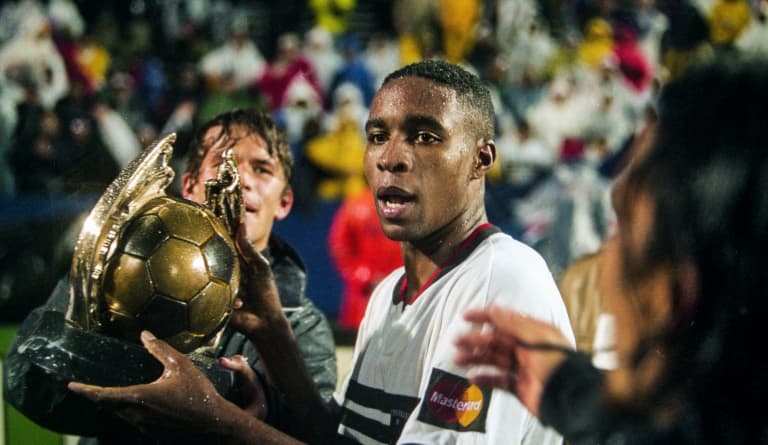
"Focus on my craft"
Things changed as I got older. I saw less of it as I moved on to the University of North Carolina, then made it onto both the US Olympic team and D.C. United as my professional career kicked into gear in 1996. After I became a regular starter in the second half of MLS’s inaugural season, I didn’t receive that kind of abuse – not to me directly. Certainly, there were some instances where the league had to step in and levy some fines here and there for incidents.
I was able to focus on my craft, though – and I had to, because I was just trying to keep my head above water. Those D.C. United teams under Bruce Arena were full of national team players, and we young guys were just trying to survive. Even the practices were really hard. That's one thing that stands out to me all these years later; it was just so fast-paced, everybody was really good. Even after I had just played in the Olympics!
On top of that, I was trying to finish college. So usually, I would practice during the week, play the game on the weekend, then fly back to school and get a handful of days in at UNC, fly back to DC, a few more practices, and so on. D.C. United was great in allowing me to do that. After we won MLS Cup, I got called into the national team, which then was another level higher – and the very first game I got called up for, I got put into. So that was another sink-or-swim moment. It was a whirlwind of a year, and if you’d told me at the beginning of it that I would be playing in a World Cup qualifier by the end? Absolutely zero chance I would’ve believed you. To earn 30 more career qualifying appearances and 82 total USMNT caps and make it to three World Cups over the ensuing decade was beyond my wildest dreams.
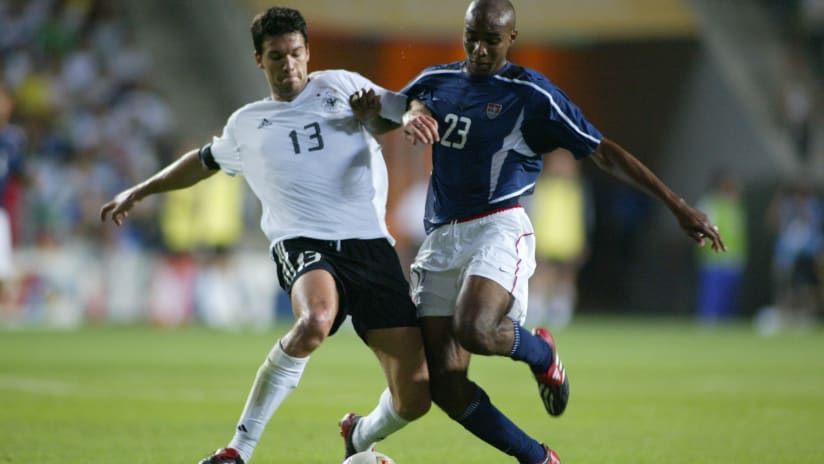
"We've got to make sure that we're all banding together"
I still work in the sport today, and I experience the youth game as a father, and have done some youth coaching. Unfortunately, I’d say we're taking steps backwards, because I’ve witnessed racism at the youth levels. I know that MLS academies are having some issues with incidents, which means that youth-only clubs are having issues, too. It's still here, sadly, and there's certainly been an uptick in probably the last six, seven years.
At some point there was a moment where people felt like they could say whatever they wanted to say and maybe were being encouraged to say whatever they wanted to say. And so that created an environment where many young Black players felt unsafe. And they wanted something done about it, and no one was doing anything about it. People didn't know what to do about it. Especially referees at the youth level – no clue what to do about it.
So that’s a shame. Everybody's trying to do something, to figure out how to handle it. That’s where MLS’s actions are so important, and I’m optimistic that MLS can and will be a leader in that, with MLS NEXT. We didn't want to be at this point, but here we are. We've got to make sure that we're all banding together to make sure that for whatever reason, kids aren't thinking that it’s OK to denigrate and abuse one another.
It’s also crucial that we not only go at it from a racial perspective, but from a gender perspective. From immigration to race to gender and class, it’s often the case that anything that's new gets attacked – somebody is going to go after someone who looks different. And we have to protect kids. There should be a zero-tolerance policy. These are children, we can't allow them to feel unsafe in these youth soccer environments.
I go to youth games where my daughter might be the only Black player on the field, easily. She has Black teammates who go back a little bit, but there were times where she didn't, and she might play an entire tournament and not see another Black player. So, there's still a ton of work to do.
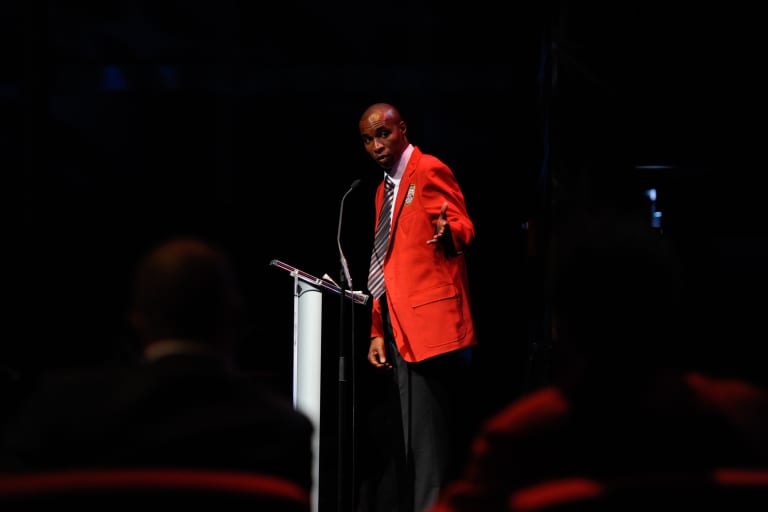
"That's why I'm optimistic"
I salute Black Players for Change, those guys really organized themselves, they're still doing a lot of really good work and it’s so awesome to see. MLS as a league has formed a Diversity Committee, which I'm on, Tony Sanneh’s on as well. Don Garber is on it, running the committee, along with Sola Winley, who I’m so happy to see was brought onboard as Executive Vice President and Chief Diversity, Equity and Inclusion Officer. There are also a lot of MLS ownership groups that are doing their own thing, making positive changes to build representation and diversity – and they're not really looking for publicity, they just really believe in that sort of change.
When you start to count up all the millions of soccer players in the United States, plus all the fans, coaches, administrators, parents, you get into multiple millions of people you can positively influence. And then those people go to school with other people, and they have jobs with other people, so you can start to really shape a certain part of the population, and things catch fire like that. That's why I'm optimistic that even if it starts with soccer, that it can grow beyond that.
We’ve already broken through barriers with this sport. When I was growing up, soccer always got disrespected. Football, that was the number-one sport. I remember in high school, at first we weren’t allowed to practice on the football field, because ‘we would damage it.’ And anybody knows if you've ever looked at a high-school field at the end of the football season, there's just no grass down the middle, football’s destroyed it! People would say things like ‘it's a girl's sport,’ ‘it’s organized kickball,’ all those kinds of things.
So to have been there in the beginning and to watch it grow to where it is now, I look at my own journey in a similar way. I started really raw at the very beginning, and I grew, got better, and by the end I was playing in World Cups and winning championships, was fortunate to score some game-winning goals. And to progress alongside MLS and just watch the success – from playing in an empty Arrowhead Stadium in Kansas City to now seeing what Sporting KC have become, for example, it's just been a lot of fun to watch it grow.
Even now, I watch young players who come to a club like, say Toronto FC or Real Salt Lake, and experience their incredible facilities and have no idea what things used to be like – have no idea that when I was there, our locker room was in a strip mall. Going from that to today, just watching this league be birthed and grown, has been amazing to see. And we can make so much further progress in the years to come.


